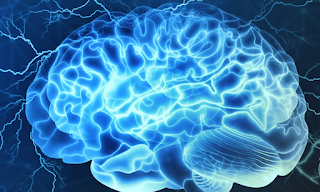Mahmoodi A, Nili H, et al.
(2022) PLoS Biol 20(3): e3001565.
https://doi.org/10.1371/journal.pbio.3001565
Abstract
A change of mind in response to social influence could be driven by informational conformity to increase accuracy, or by normative conformity to comply with social norms such as reciprocity. Disentangling the behavioural, cognitive, and neurobiological underpinnings of informational and normative conformity have proven elusive. Here, participants underwent fMRI while performing a perceptual task that involved both advice-taking and advice-giving to human and computer partners. The concurrent inclusion of 2 different social roles and 2 different social partners revealed distinct behavioural and neural markers for informational and normative conformity. Dorsal anterior cingulate cortex (dACC) BOLD response tracked informational conformity towards both human and computer but tracked normative conformity only when interacting with humans. A network of brain areas (dorsomedial prefrontal cortex (dmPFC) and temporoparietal junction (TPJ)) that tracked normative conformity increased their functional coupling with the dACC when interacting with humans. These findings enable differentiating the neural mechanisms by which different types of conformity shape social changes of mind.
Discussion
A key feature of adaptive behavioural control is our ability to change our mind as new evidence comes to light. Previous research has identified dACC as a neural substrate for changes of mind in both nonsocial situations, such as when receiving additional evidence pertaining to a previously made decision, and social situations, such as when weighing up one’s own decision against the recommendation of an advisor. However, unlike the nonsocial case, the role of dACC in social changes of mind can be driven by different, and often competing, factors that are specific to the social nature of the interaction. In particular, a social change of mind may be driven by a motivation to be correct, i.e., informational influence. Alternatively, a social change of mind may be driven by reasons unrelated to accuracy—such as social acceptance—a process called normative influence. To date, studies on the neural basis of social changes of mind have not disentangled these processes. It has therefore been unclear how the brain tracks and combines informational and normative factors.
Here, we leveraged a recently developed experimental framework that separates humans’ trial-by-trial conformity into informational and normative components to unpack the neural basis of social changes of mind. On each trial, participants first made a perceptual estimate and reported their confidence in it. In support of our task rationale, we found that, while participants’ changes of mind were affected by confidence (i.e., informational) in both human and computer settings, they were only affected by the need to reciprocate influence (i.e., normative) specifically in the human–human setting. It should be noted that participants’ perception of their partners’ accuracy is also an important factor in social change of mind (we tend to change our mind towards the more accurate participants).
